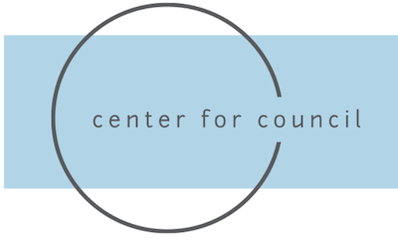|
Compassion, Attunement & Resilience Education for Healthcare Professionals (CARE) features an evidence-based curriculum, combining the latest innovations in mindfulness with peer-led group council practice to deliver a powerful and sustainable skills-based program for physicians, nurses, and other healthcare professionals. Utilizing the council methodology, participants learn to speak authentically, from personal experience rather than opinion, and to cultivate more attentive listening.
The practice of council builds communication skills and promotes compassion, cooperation, and professional well-being. Throughout the three to six month program, council provides a platform for the exploration of a range of topics presented in weekly reading and practice assignments. Council reduces the emotional exhaustion and depersonalization identified as two of the three domains most highly correlated with risk of burnout. Listening without judgement and speaking authentically lessens isolation and fosters empathy, leading to an ability to practice with less cynicism towards colleagues and patients. “Mindfulness programs may help to minimize exhaustion, increase compassion, and improve understanding of other people’s feelings.” - Journal of General Internal Medicine, 2018 |
addressing an epidemic
|
|
Burnout amongst healthcare professionals results in myriad personal and professional repercussions. Studies have demonstrated that individuals experiencing burnout are at an increased risk for cardiovascular disease, as well as a host of other health consequences, including type 2 diabetes, hypercholesterolemia, coronary heart disease, hospitalization due to cardiovascular disorder, musculoskeletal pain, changes in pain experiences, prolonged fatigue, headaches, gastrointestinal issues, respiratory problems, and severe injuries. Burnout may also contribute to the increased risk of suicide that exists among health care workers; as many as 400 physicians die by suicide each year in the US, more than twice that of the general population.
|
|
"Curbing physician burnout requires a combination of workplace redesigns, positive leadership behaviors, and resilience training that teaches practical applications from the fields of resilience, emotional intelligence, positive psychology, and relationship systems." - Clinical Obstetrics and Gynecology, Volume 62(3), September 2019 |
The CARE Program offers practical skills for recognizing and managing stress, honing attention, regulating emotions, and enriching relationships with colleagues and patients. Through this program, Center for Council equips those responsible for public health and well-being with tools and resources by which they emerge as healthy individuals themselves. The methodology and praxis supports the development of enhanced self-awareness and self-regulation skills that provide prophylaxis against acute and chronic dysregulation, which correlates with increased risk of burnout and other negative health implications.
The tools and practices taught in the CARE program enhance morale and strengthen resilience in the face of stress, leading to improved health, more positive relationships with colleagues and patients and sustainable work-life balance. Through a robust evidence-based curriculum, interactive exercises and small group councils that teach participants durable techniques for developing greater self-awareness, participants are equipped to communicate more effectively with peers, as well as patients and provide a higher quality of care.
The tools and practices taught in the CARE program enhance morale and strengthen resilience in the face of stress, leading to improved health, more positive relationships with colleagues and patients and sustainable work-life balance. Through a robust evidence-based curriculum, interactive exercises and small group councils that teach participants durable techniques for developing greater self-awareness, participants are equipped to communicate more effectively with peers, as well as patients and provide a higher quality of care.
|
watch this video interview with Dr Ann. Seide on physician wellness and the CARE program:
|



